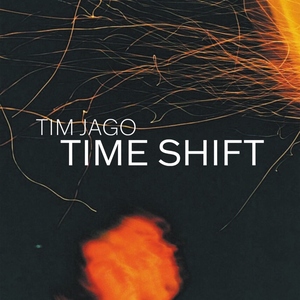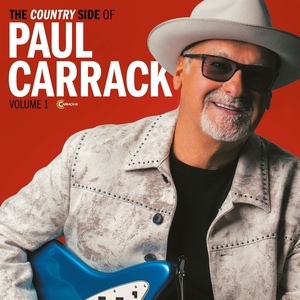Dozens of new albums arrive at Maxazine’s editorial staff every week. There are too many to listen to, let alone review. This ensures that too many albums are left behind, and that’s a shame. That is why we post an overview of albums that arrive at the editors in brief reviews today.
Photo (c) Jorge Fakhouri Filho
Tim Jago – Time Shift
The title of this album is remarkably accurate: the original compositions by this Australian guitarist are characterised by changing, often unusual time signatures and tempos. While Tim Jago’s name appears on the cover, it’s truly drummer David Chiverton’s achievement that keeps the pieces neatly on track. That’s no easy task, especially when pieces feature double time signatures – double timing. Take a piece like “Soil to Sky” where there’s constant alternation between a 4/4 time and 5/8. Chiverton keeps the composition tight while Jago and saxophonist Mark Small weave their melodic solos through the rhythm. In such complex compositions, an album risks becoming too technical, but that’s not the case here: on the contrary, it’s primarily the infectious energy that propels this album forward. Of course, you can hear that this is demanding material, and some flexing of musical muscles isn’t foreign to the ensemble around Jago. However, the result is still an album with predominantly beautiful fusion work. The highlight is bassist Dion Kerr’s solo in “Major”, who utilises the full register of the six-string bass for this purpose. Besides the original compositions, this album contains two covers: “Bernie’s Tune” by Bernie Miller and “Body and Soul” by John Green. The latter piece, a jazz standard from the thirties, poses an enormous challenge for many soloists due to its unusual chord progression, but once again it’s a masterful Chiverton who draws more attention than Jago’s virtuosic fingers or Small’s lyrical saxophone. Thanks to Chiverton, “Body and Soul” retains the swing with which Coleman Hawkins made the number famous in the forties as one of the first bebop recordings. This makes “Time Shift” primarily David Chiverton’s album. (Jeroen Mulder) (7/10) (Bespoke Jazz)
Morten Haxholm – Aether II
“Ambient 1: Music for Airports” from 1978 was the album with which Brian Eno introduced music he described as “as ignorable as it is interesting,” intended to fill a space, not to demand attention. Eno was undeniably the man who made soundscapes popular, including influence on jazz, especially in the more experimental and ambient-oriented directions of modern jazz. It’s precisely in Scandinavia that this style can charm many enthusiasts. And so Danish bassist Morten Haxholm once again fills a disc with music that straddles the line between meditative sound experience and experimental jazz. Minimalism and electronics form the main ingredients of this “Aether II.” You can certainly tell a beautiful philosophical story about it, about childhood memories of magnolia in your grandparents’ garden, toys, or beautiful natural scenery, but that doesn’t hide the fact that the compositions and especially the motifs are rather simple at their core. Tranquillity, Haxholm calls it himself. The record must rely mainly on the ambient sound, which through excellent production sounds extremely refined and spatial, as if the ensemble is standing in your room playing. Musically, however, too little happens to hold attention for a full three-quarters of an hour. (Jeroen Mulder) (6/10) (Zack’s Music)
Paul Carrack – The Country Side of Paul Carrack, Volume 1
At 74 years old, Paul Carrack ventures into his first country album, a nostalgic collection of ten classic country numbers from the fifties to the seventies. The man with “the golden voice” proves that his warm baritone voice works surprisingly well with this genre. The album opens strongly with Don Gibson’s “Sea of Heartbreak” (1961), where Carrack’s soulful interpretation gives the classic a modern freshness. Highlights are the single “Take These Chains from My Heart” by Hank Williams and the original “Cold Light of Day” with playful piano lines. The Nashville production by Steven Wood is excellent, with authentic country instrumentation that perfectly integrates with Carrack’s characteristic keyboard work. At 32 minutes, the album is rather short, and Carrack plays it predominantly safe with familiar classics. Yet he succeeds excellently in showing respect for the country tradition while making the numbers his own. A warm, skilful tribute that hopefully will get a sequel. (Jan Vranken) (7/10) (Carrack UK)
Russ – W!LD
After his commercial breakthrough with hits like “What They Want,” Russ returns with an introspective journey inward. “W!LD,” his sixth studio album, marks a conscious distance from the external successes that have defined his career. The Atlanta-based rapper ventures into unknown territory and explores who he is, beyond the controversy and commercial success. Musically, Russ combines his characteristic self-produced production with a more mature perspective. The 19 tracks range from the motivating anthem “Movin'” to the vulnerable self-reflection of “Trying.” His words remain sharp but show new depth in exploring boundaries and emotional growth. The production feels more organic than on earlier projects, with room for both coolness and silence. Highlights are the infectious “April 7” and the contemplative “Superman,” where he acknowledges that he can’t always be the saving angel. The album benefits from his versatility but sometimes lacks focus in its ambition to illuminate all sides of his personality. Nevertheless, “W!LD” proves that Russ’s evolution as an artist and human being go hand in hand, resulting in his most personal work to date. (Elodie Renard) (7/10) (Diemon)
Haim – I Quit
Five years after the Grammy-nominated “Women in Music Pt. III,” the Haim sisters are back with their most honest statement to date. “I Quit” functions as an extended resignation letter to everything that no longer serves them, from toxic relationships to their limiting thoughts. It’s their first album without longtime producer Ariel Rechtshaid, resulting in a more direct and rocky sound. The 15 tracks breathe liberation and self-acceptance. Rostam Batmanglij’s co-production brings the band back to their rock roots, while the lyrical maturity explores new territory. Danielle’s voice is more central than ever, supported by her sisters’ warm harmonies. From the infectious frustration of lead single “Relationships,” comparable to their breakthrough hit “The Wire,” to the U2-inspired closer “Now It’s Time,” the album shows their greatest emotional range. The first half contains the strongest numbers, including the playful “Down to Be Wrong” and the cathartic “Everybody’s Trying to Figure Me Out.” Some later tracks feel less essential, and the album sometimes misses a consistent “Haim 2025” sound. Yet “I Quit” proves that giving up is sometimes the most courageous choice, both artistically and personally. (Jan Vranken) (8/10) (Universal Music)






